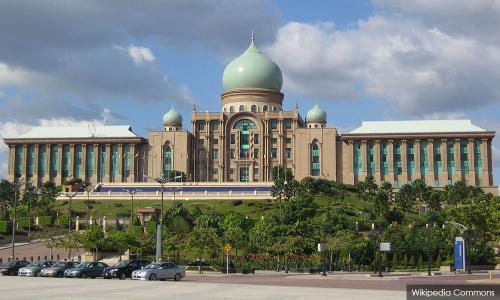LETTER | Could unity govt be Malaysia’s best solution for now?
LETTER | There is a growing groundswell of talk in Kuala Lumpur business, civil service and political circles over the need for a national unity government.
The idea for a national unity government gained steam last month when activists and regular political commentators Lim Teck Ghee and Mohd Tajuddin Mohd Rasdi issued an open letter calling for such a government and laying out a plan to achieve the aim.
Their manifesto calls for the 222 members of the Dewan Rakyat, or the lower house of Parliament to elect a prime minister through a number of rounds of voting, and for the elected prime minister to select a cabinet from members of all the major political parties, currently sitting in Parliament.
This is not entirely without precedent. After an emergency decree, following the May 1969 race riots that took hundreds of lives, successive governments under the BN had characteristics of a national unity government.
After Dr Mahathir Mohamed resigned in February 2020 and stayed on briefly as caretaker until Muhyiddin Yassin was sworn in, he called for a national unity government. It was dismissed by most as a political ploy for Mahathir to maintain his position as prime minister. However, in the months following, a growing number of commentators went back to the concept.
The word in Kuala Lumpur political circles, despite the cynicism, is that there is also strong positive support from “powerful personalities” within the major political parties.
Any national unity government would need to include members from the majority of the 13-odd parties of varying strength and numbers. And while the numbers might appear daunting, Muhyiddin has already put in place a huge multiparty cabinet as he seeks to reward loyal backbenchers and lure others on board.
Such a coalition should be able to end political infighting until the next election, due in 2023, as Parliament could run the full term without the need to call an election. However, countering this argument is the possibility that the elite Malay group who have long dominated Malaysian politics, would hijack the government for their own self-serving ends.
Although Lim and Tajuddin have laid out a path towards a national unity government, the selection of prime minister would be the sticking point.
Muhyiddin is unlikely to voluntarily give up the office with only a slim chance of regaining it on an uncertain ballot. Any dream of a national unity government could end there. Probably the only way of advancing the cause of forming a national unity government would be for Muhyiddin to remain in place.
To complicate things more, there are the terminally ambitious political rivals Anwar Ibrahim and Mahathir. Both are potential spoilers. The Umno “court cluster” leadership - named for the fact that most of the leadership is on trial for financial misdealings - would certainly have strong vested interests in how the numbers play out. They still carry great influence within Umno, the largest single party within Parliament.
Pulling off any chance probably would depend on the Yang di-Pertuan Agong. He would need the Council of Rulers steadfast behind him. It’s a remote possibility that he would because of the need to overcome constitutional strictures.
If the king did act, he would almost certainly win the support and respect from the rakyat - the people - a powerful lever in Malaysian politics at this time.
There have been no polls about whether the public would support a national unity government. Infighting, self-interest, immaturity, and rivalry between the country’s current politicians appear to make the chances slim that any potential national unity government could be negotiated.
However, pressure from a weary public desperate for relief from the county’s unceasing petty political wars could increase the chances.
A version of this article was first published in the Asia Sentinel.
The views expressed here are those of the author/contributor and do not necessarily represent the views of Malaysiakini.
RM12.50 / month
- Unlimited access to award-winning journalism
- Comment and share your opinions on all our articles
- Gift interesting stories to your friends
- Tax deductable
